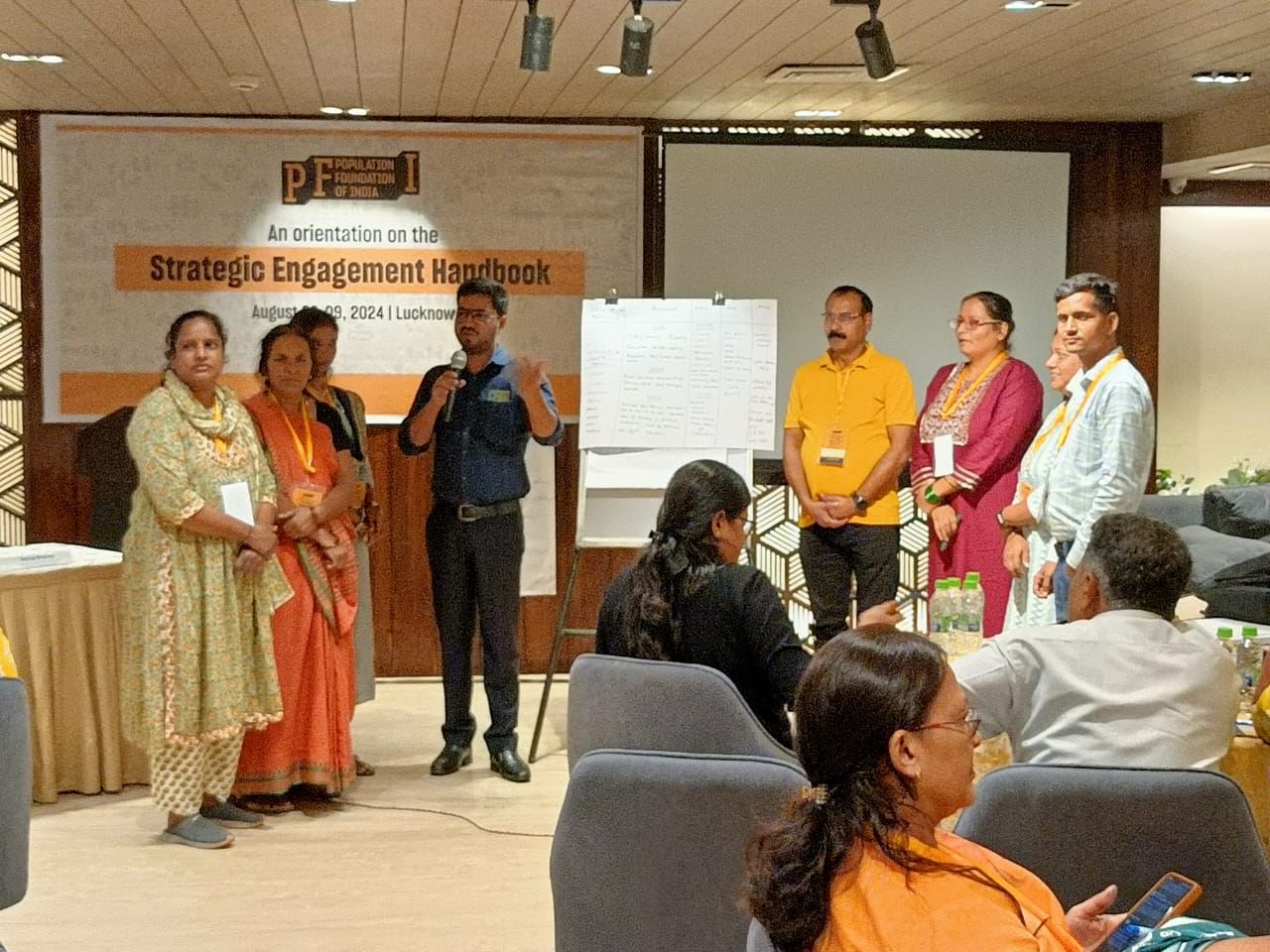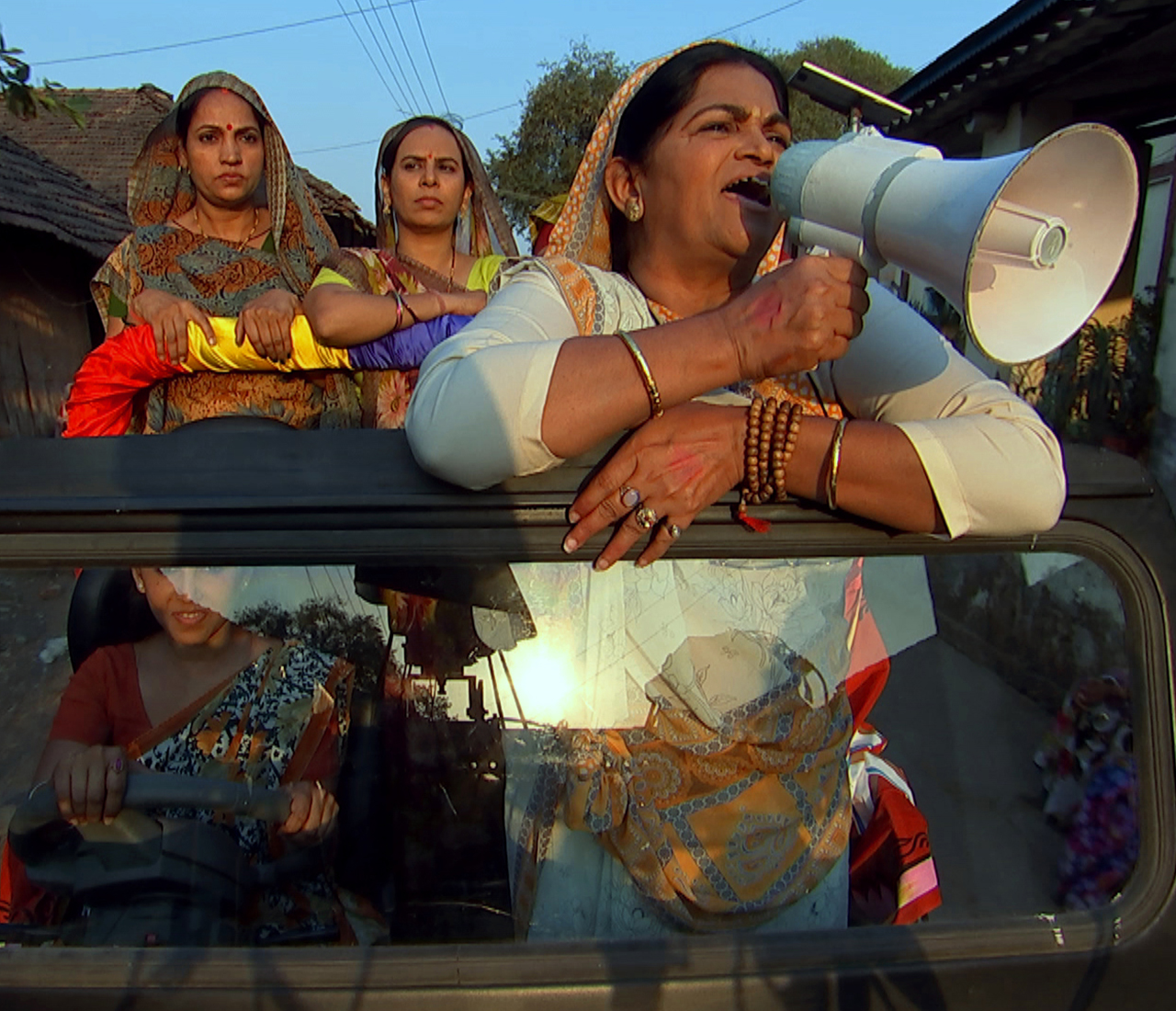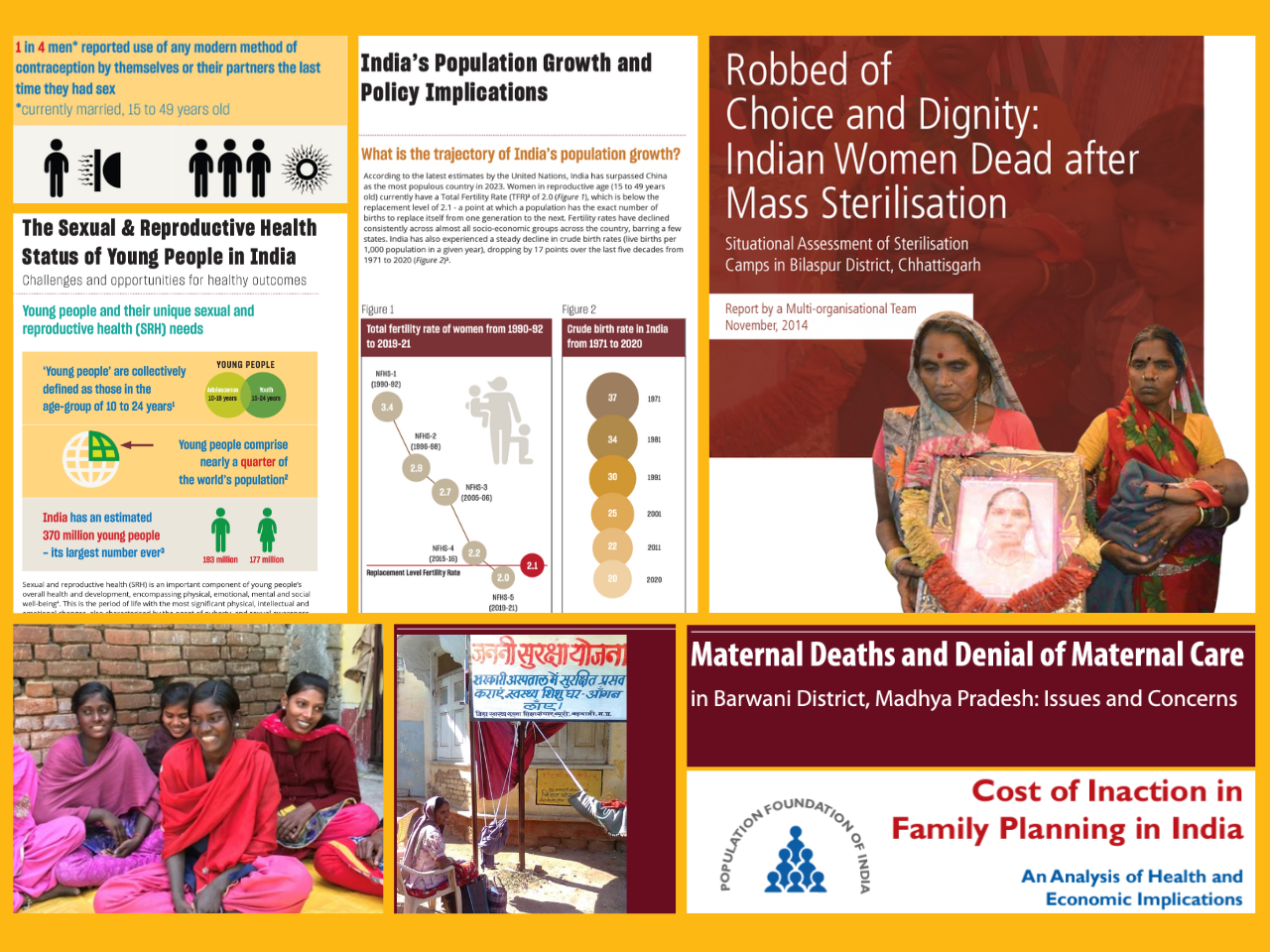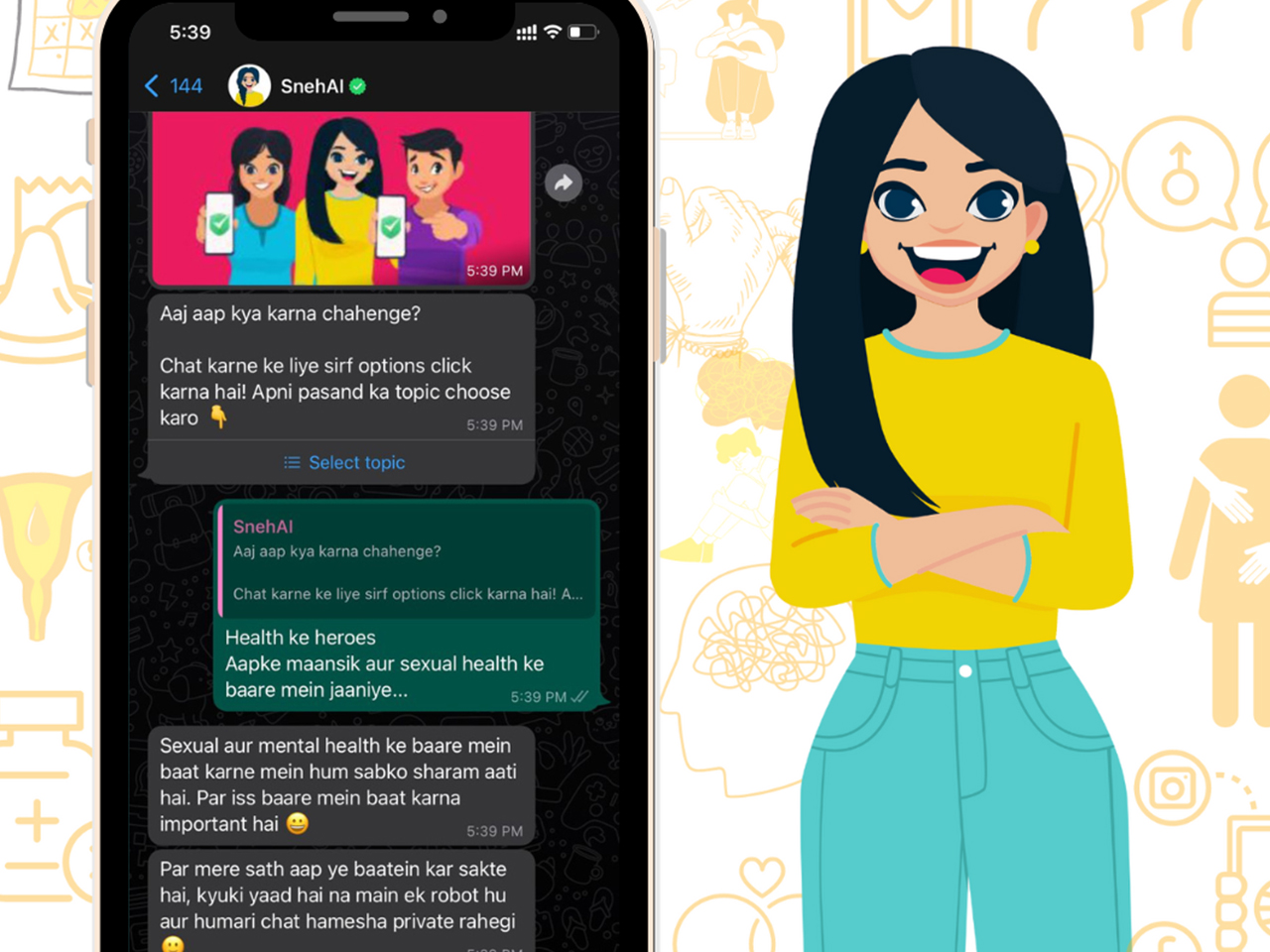Approaches

Strategic Engagement
Strategic Engagement constitutes one of the core pillars of Population Foundation of India’s work whereby we engage with key stakeholders – governmental, non-governmental, and media in the domain of family planning (FP), sexual and reproductive health (SRH), and population-related issues. We do so by constantly monitoring programmatic and policy developments in FP, population, and SRH areas and making evidence-backed interventions wherever necessary. Our goal is to shift the FP and population discourse to a gender-sensitive and evidence-based approach .
.
Community Action and Accountability
Population Foundation of India leverages community action and accountability to strengthen the functioning of health systems. In tandem with the National Health Mission’s strategy of Community Action for Health, we enable communities to discuss the availability and quality of healthcare services in public health facilities and provide appropriate feedback to healthcare officials. Our aim is to promote the agency of youth, particularly girls and women, within community-led participatory initiatives to bring greater efficiency and accountability into public systems and delivery services. We hosted the secretariat of Advisory Group on Community Action (AGCA) from 2005 to 2023, a committee constituted by the Ministry of Health and Family Welfare (MoHFW) to provide guidance on community processes, particularly related to accountability. AGCA comprised of eminent health experts and provided technical assistance to 24 state governments to strengthen and scale-up community action processes across 362 districts and 71 cities.

Research and Evidence Generation
Research, evidence, and data are the cornerstones of Population Foundation of India’s programmes and policy initiatives. It is an important crosscutting strategic priority that informs all our programmes. Our founders had envisioned the organisation to play an active role in engaging in the exercise of knowledge production and leveraging intellectual resources to inform policies and programmes in the domain of family planning, contraception, adolescent and youth health. This legacy has carried on as we continue to support high quality research, collate and circulate credible information, and serve as a reliable source of data to media organisations, academicians and government on family planning and sexual and reproductive health issues.


Digital Interventions
Taking cognizance of an increasingly digitised world, in the last few years, Population Foundation of India has adopted a digital-forward strategy in its programmes. We have made significant progress in creating digital tools and services to reach adolescents, and promote their health and well-being. Our goal is to leverage the accessibility and reach of digital tools to promote the sexual, reproductive, and mental health, and online safety of adolescents and youth. Our recent interventions include the Family Planning Resource Bank – a one-stop online source for reliable data on family planning, sexual and reproductive health, and fertility trends; SnehAI, an Artificial Intelligence-powered chatbot, available on Facebook Messenger and WhatsApp along with a voicebot, providing a secure, personalised and non-judgemental space for young people to learn about issues related to sexual and reproductive health and online safety, and Educately, an e-learning platform and digital resource for information pertaining to adolescent health and wellbeing.

Social and Behavioral Change Communication
Social and Behavioral Change Communication, commonly known as SBCC, is a key approach used by Population Foundation of India to effectuate positive health and well-being outcomes. Our emphasis on this approach is driven by the understanding that individual decisions are informed and influenced by the prevailing societal norms. Over the past few years, we have adopted and applied a 360-degree approach to SBCC, using entertainment education (edutainment) and innovative digital media as critical means to inform and influence knowledge, attitudes, and behaviour. We have been involved with the first few TV soap operas in India – Hum Log (1984-85) and Hum Raahi (1992-93). We were also the lead agency in supporting a radio drama series on youth sexuality, Dehleez, in collaboration with the All India Radio.
Read more